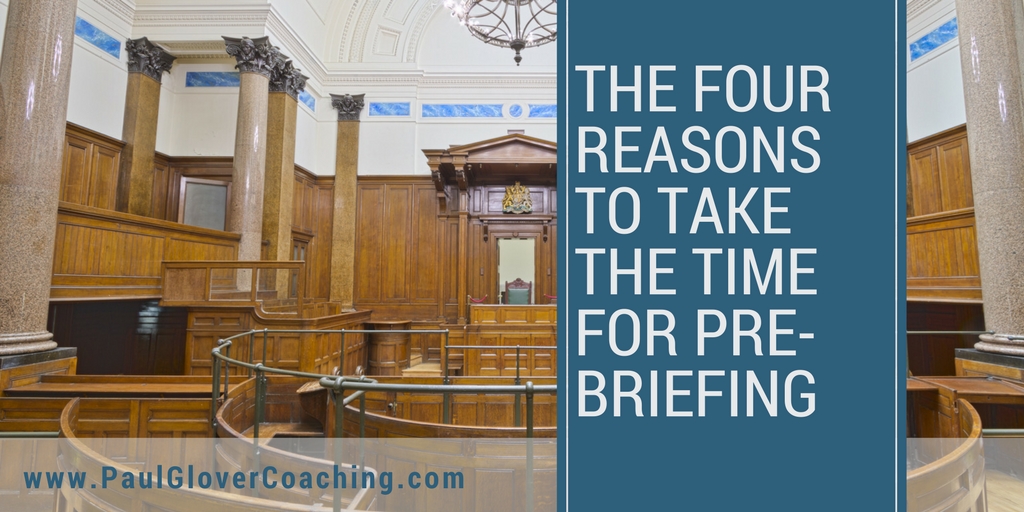
22 Jun The Four Reasons to Take the Time for Pre-Briefing
During a recent coaching session, a company VP told me he had a meeting scheduled with a manufacturer who supplied the bulk of the products his company sells. I asked him if he would like to Pre-Brief this upcoming meeting. While he was familiar, and used, De-briefing as an effective tool to determine how well a meeting or call went, he was unfamiliar with Pre-Briefing. I informed him that Pre-Briefing, either for a meeting or a phone call, consists of:
- Clearly establishing the items on the agenda you need to accomplish during the meeting/call.
- Determining the other person’s real purpose for the meeting/call.
- Preparing a response to requests or demands that might be made during the meeting/call.
The advantages of taking the time for Pre-Briefing are:
- In most cases, even if it is not your meeting, you will be able to drive/direct the meeting and get your items or concerns addresses.
Since it is all about meeting preparation, Pre-Briefing
- Provides focus and clarity other participants probably won’t have
- Eliminates “shooting from the hip” responses that generate unrealistic expectations and
- Creates a specific plan to persuade other participants to your point of view.
2. Pre-Briefing is the opportunity to consider the purpose of the meeting from the other participants’ perspective. Even though there may be a stated reason for a meeting, there is often a hidden agenda that only becomes clear during the meeting and catches everyone by surprise “ never a good thing! Using the surprise factor, people are able to get what they want even though they might not be entitled to it.
3. Pre-Briefing stops items from falling through the cracks Often, in the heat of a meeting, items that should be discussed are forgotten.
Does Pre-Briefing require you put in some time to do the preparation? Absolutely.
Will the extra time you devote to Pre-Briefing have a significant ROI for the time invested? Absolutely!
When I was a practicing employment/labor lawyer, I always wanted to be the most prepared attorney in the courtroom since I knew, in most cases, the amount of preparation (normally four hours of prep for every one hour in front of a jury) was directly connected to a successful outcome. To illustrate how seriously I take Pre-Briefing, before every trial began I did a mock trial with a jury of law students. This Pre-Briefing gave me the opportunity to gauge how effective my arguments and presentation were and to hear the other side’s arguments presented by an associate! Pre-Briefing ensured I was fully prepared to present my client’s case to the best of my ability and I was seldom blindsided or surprised by either the evidence or the antics the other side presented in court.
The Bottom Line:
There was a commercial that stressed automobile preventive maintenance by stating “You can pay me now or you can pay me later”. That’s the basis for Pre-Briefing. Taking the time necessary to prepare is a required element of success in any communication. And if you don’t take that time you will pay later.


No Comments